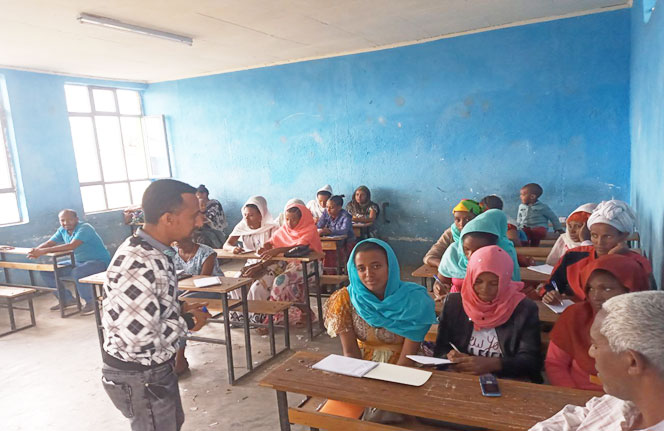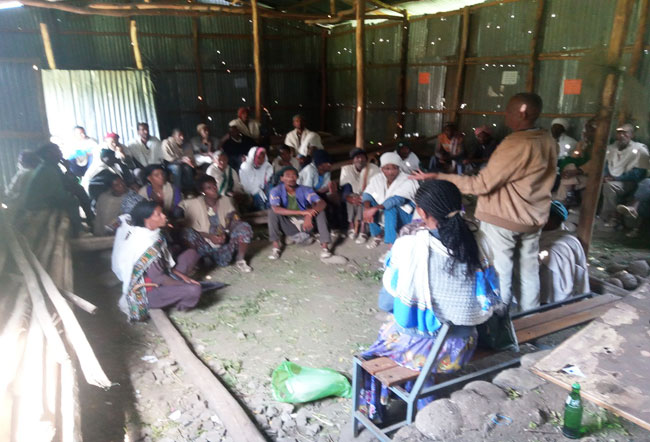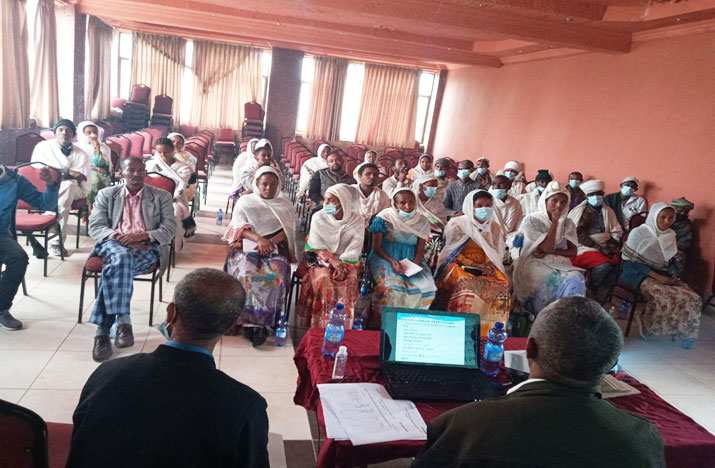Ipas Project 1 - Activities
With stakeholders from woreda Health office and Women and Children’s Affairs Offices volunteers, we identified the status of SGBV victims. The task of identifying victims of SGBV is difficult and need continues follow up. The 90 HEWs and 10 volunteers (70 in total) took a training for two days. They refreshed on the overview of the project and on SRHR services, safe abortions, contraception, SGBV, reporting and seeking medical care and psychosocial support.

Trainings HEWs and Volunteers
With stakeholders from woreda Health office and women and children’s affairs offices volunteers, we already recorded 207 suspected SGBV victims from four weredas. The task of identifying victims of SGBV is difficult and need continues follow up and considering every need. The number of victims may increase when we get all the trained HEWs and volunteers at the end of the project. All the trained HEW and volunteers conduct the assessment of need for psychosocial support and SRHR services among the community in their weredas. Also, 207 SGBV survivors from four weredas were recorded.
After registering and conducting primary screening for the need for medical care, SRHR services, safe abortions, contraception, and psychosocial support the HEW in the host communities and volunteers in IDP communities, we link them with the nearest health centers.
60 HEWs and 10 Volunteers took a training for two days based on the agenda on the overview of the project and on SRHR services, safe abortions, contraception, SGBV, reporting and seeking medical care and psychosocial support. The workshop raised their knowledge and enabling them for psychosocial and referral.

Health Extension Workers in local communities and volunteers taught community members (women, men / young, adult) (in host communities and for IDPs) through active participation in group learning and contact via home-to-home visit to identify sexual and gender-based violence, discuss SRHR, safe abortions, contraception.
A one-day training was given to 80 religious leaders, village elderly or other community influencers, from the community in the area and from IDP across the woredas on SGBV, reporting and seeking care, community support required in recovery and reintegration process, sexuality education, awareness on supports available for survivors. The training was aimed to provide awareness raising on eliminating GBV and fight stigma on GBV victims/survivors.

HEW and Volunteers form a committee that ensures the project outcomes are sustained and being beneficial to the communities. The committees formed according to guidelines that prepared and all segment of community are represented as much as possible. These committees set up this in both IDPs and the local communities alike.

The radio program has been broadcasting for two months on contents of GBV that describing GBV as when there is a strange action applied on the society in terms of sexual, physical, economical and psychological vulnerability, every person in the community has a responsibility to fight such kind of act that is upon directly or indirectly on women and also, Expanding and raising awareness on community about SRHR education and SGBV, prevention from unwanted pregnancy, unsafe sex and sexual transmitted diseases including HIV. The radio programmes broadcast on FM radio stations that cover North Wollo contracted by Amhara Mas media corporation (AMC).
